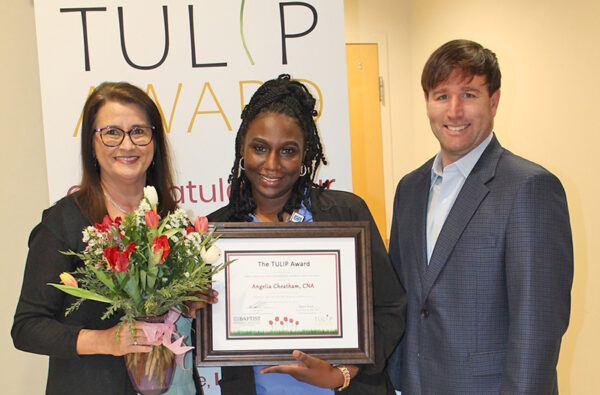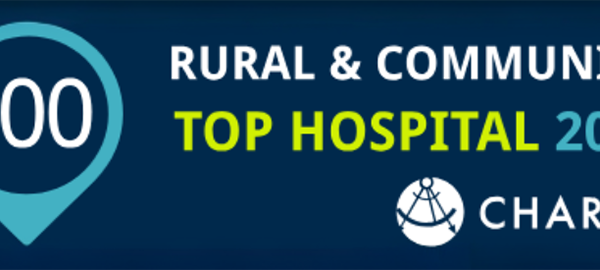Even years into the COVID-19 pandemic, navigating your way through it is confusing. When should you get tested? Are those rapid antigen tests good to use? Is it OK to go to work with the sniffles? Are booster shots necessary?
Thankfully, we have Dr. Stephen Threlkeld, Baptist Memorial Health Care’s medical director of Infection Prevention, to help provide guidance during these uncertain times. We talked with him about boosters, testing and why it’s still important to prevent COVID infections.
Why is it particularly important for health care workers to get a COVID-19 booster?
Preventing infection in health care workers is going to have a doubly important impact on the community because we’re around people who are most vulnerable to this disease. We need to take that extra step to protect those people around us every day as part of our job.
If you have significant underlying medical problems, the booster may very well protect you too from more serious disease as you get farther out from your original vaccination. You’re probably well protected from severe disease without the booster, but we again need to add that extra layer of protection for those around us when we’re health care workers.
I got a booster earlier on because I’m around immunosuppressed people like heart transplant patients all day. And my minor infection, maybe even asymptomatic infection, could endanger someone else who catches it from me. People who are immune suppressed in any fashion, like those with organ transplants, tend to have a more significant infection with any variant.
Some people are discouraged about the effectiveness of the COVID-19 vaccines due to breakthrough infections. What would you say to them?
No vaccine has ever been 100% effective, nor has this one from the beginning. If you look at omicron you see it does a pretty good job getting around our immunity from prior vaccination and prior natural infection. Without a recent booster, a fully vaccinated person only has an estimated 30 percent protection from symptomatic disease with omicron. Two weeks after getting the booster, the protection is 70 to 75% against breakthrough symptomatic infections. That’s a substantial increase.
To say that the booster doesn’t work against breakthrough infections is incorrect. It works quite well, but it’s still not perfect, and we don’t know how long the added protection will last.
Omicron did push us a big step back with immune protection, but the vaccine booster essentially at least temporarily erases what omicron did after delta in the way of our likelihood of breakthrough infections.
Will getting a booster shot help curb the current omicron surge?
Omicron will likely be short-lived because it’s so contagious. However, when there are so many more cases of omicron – when the denominator becomes that big, you’re going to see more people who get sicker even if it’s less likely to make any given patient as sick as delta.
When you’re talking about a booster that for now decreases your chances of breakthrough infection by more than half, then absolutely it’s going to have an effect. If every previously vaccinated person got a booster, it could cut more than half of the cases out in the short term.
Even after getting a booster shot, what precautions should we all continue to take to help the pandemic finally end?
Still be careful about large indoor crowds with poor ventilation and stay home when sick. Too many times we’ll test someone who went to work sick at whatever job they have.
Right now if you have respiratory symptoms, there’s a very large likelihood it’s COVID, and you should contact employee health before reporting to work. If you have household exposure and are not high risk for severe disease, please call employee health.
If you’ve been around someone who’s infected and you have COVID symptoms, you should get a PCR (polymerase chain reaction) test or at least a repeat rapid antigen test. The rapid antigen tests are very helpful, but they’re not as sensitive as PCR tests.
Testing is the one thing where we’ve really fallen nationally more than some other countries. We’re talking about having a lot more tests available that are inexpensive, and that’s great, but I’m afraid it’s going to be too little too late with respect to omicron, which may have coursed through our community by the time those tests are available. But if you have access to a rapid antigen test, pick one up.
How should you interpret the results of rapid antigen tests, also called home tests?
If you have a positive test, do not assume it is a false positive test. That is extremely rare. Don’t try to get a PCR test to verify your positive home test and go to work or out with friends until you get the results back. It’s a mistake that we’re seeing people make and a lot of people are being infected because folks don’t believe their positive rapid antigen test.
Almost always rapid antigen tests are correct when positive. It’s when they’re negative that we can doubt them. The test is much more specific than it is sensitive. That is, it’s much better at confirming than ruling out a case. I think most infectious disease experts would agree that you do not need to get a PCR test on top of the positive rapid antigen test to confirm it.
Rapid antigen tests can more frequently be falsely negative. PCR testing is not perfect, but it is more likely to catch a case, more sensitive than the rapid antigen test. Either test is very compelling if positive. They don’t tell you that you have COVID if you don’t. They absolutely can miss COVID when you really do have it. Reasons may be improper swabbing, or you’re not putting out as much virus for the test to detect.
The people that those home antigen tests miss tend to be the people who are less contagious in the first place and a lot of those people are less contagious because they were fully vaccinated or boosted too.
What symptoms should we look for to indicate we need to be tested?
In the beginning we were looking at things that were more peculiar to COVID like loss of taste and smell. Now, particularly with omicron, it tends to be a less severe illness. So, for the next month or so, if you have any respiratory or cold symptoms you should be tested, because you might be contagious.
It’s hard to tell COVID from a common cold right now. Some people jump to the conclusion it’s no longer important because of that, but we need to change our focus to protect people who are vulnerable, and those people may get very sick from getting our infection even if we are not as likely to be very ill with omicron compared to delta.
Is there anything you’d like to add?
It’s important to get your flu shot this year too. The flu hasn’t been terrible this year, but it still has time in our part of the country because some of the real surges of flu here can be in February or March. What we’re facing now is an overload with COVID. We don’t want to add a lot of flu cases onto that because that would be a lot of extra straws on the camel’s back. So, getting a flu shot as well as your booster is very important, and you can get them at the same time.
To find a COVID-19 or flu vaccine near you, visit vaccines.gov and enter your ZIP code.






